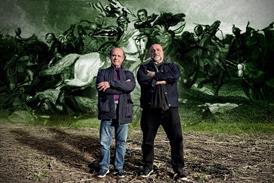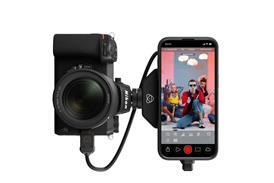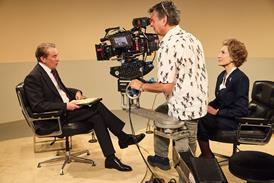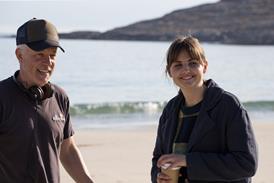Brad Duea and Napster are unlikely bedfellows. In one corner you have the illegal peer-to-peer (P2P) music-sharing site built in 1999 by Shawn Fanning and felled three years later by a blizzard of lawsuits.
In the other corner you have California-blond lawyer Bradford Duea, product of the finest education the US can offer. While Fanning needled the music industry, Duea (pronounced 'Dooey') collected a law degree, MBA, Juris Doctor masters and a job with venerable LA firm O'Melveny and Myers.
So when Napster went into liquidation in 2002, Duea was not the obvious saviour.
But Duea, a passionate music fan, was now handling acquisitions for CD software giant Roxio - a company with big ambitions and money to spend. Targeting digital downloads as the future, Duea oversaw Roxio's acquisition of Napster for just $5m and also bought Sony and Universal's legal online music service, Pressplay.
Within a year, Duea had combined the companies' assets and helped to relaunch Napster in his own image: legally watertight and mainstream, but with a knowing respect for the niche 'long tail'. After all, this is a man whose mainstream Fleetwood Mac CDs sit alongside more obscure LPs by Gene Loves Jezebel, Devo and The Cult.
'At high school my buddies would go to concerts and tell me about new music,' says Duea, now Napster president handling global business and development. 'But suddenly you're grown-up and busy at work, so how do you discover this stuff?'
Duea's answer was subscription. Napster-to-Go users pay £14.95 a month to create a personal library from a 3 million-song database, and that library remains safe as long as they pay a subscription. Users can pay 79p to download a song and keep it forever (£7.95 for albums), but, with 87% of Napster's revenue coming from subscriptions, consumers clearly prefer the 'all you can eat' option.
Duea isn't surprised. 'People love to discover new music. If you have to pay every time you try a song, you won't bother. Subscription lets you try as much music as you can from every genre you can imagine, and I love that idea. People still download favourite songs and buy CDs, but subscription is key because there's just so much content now.'
Napster's subscription model has more in common with TV than with pay-per-download services like Apple's iTunes, says Duea. 'Viewers don't care about owning every programme they watch. If they really love something they might buy the DVD, but mostly they discover content by subscription and watch it when they want using their PVRs.'
Duea's passion for discovering new music has led him to implement recommendation and community tools that echo his most admired website, MySpace. 'We get new music in day in day out, so we're able to recommend new songs and artists. It brings back the 'hey, have you heard????' side of being a fan.'
But people don't always want recommendations - sometimes they're in Google mode. 'Search is absolutely crucial to Napster, and to any content service. Consumers' expectations have been raised by Google and they expect to be able to find what they want quickly and then find similar stuff. The technology is there, but I don't see it being used yet on TV platforms.'
The problem, suggests Duea, is that broadcasters and TV service providers are reluctant to launch next-generation features before they're perfect. 'I know these guys have a lot of money riding on these applications, but the best way to perfect a service is to roll it out, then use your customers' feedback to evolve and refine it, the way MySpace does.'
Along with search and subscription, multiplatform is the third plank in Duea's vision for giving consumers free and easy access to a wealth of content. Napster-to-Go users can transfer their library between three separate computers plus three mobile devices, such as MP3 players or mobile phones. Duea regards mobiles as central to Napster's future, with good reason: of the 823 million mobiles sold in 2005, 10% were music-enabled and most were Napster-compatible.
'Phones are integral to people's lives,' says Duea. 'When you leave the house you take your phone, wallet and keys. That's an incredible base and it's dramatically changing our business.'
There is one mobile device, albeit not a phone, that won't work with Napster: the iPod. 'The iPod has sold 70 million to date and that's dwarfed by mobiles,' reasons Duea. 'Unfortunately it's a closed proprietary device that only works with iTunes, and Apple won't license its DRM [digital rights management] to us.'
Internet guerrillas despise DRM as an establishment cash-raking tool, but Duea is philosophical. 'DRM is what allows subscribers to access all those songs without having to deal with corrupted files, viruses and other stuff you get on illegal sites.'
Indeed, downloading Lost from a P2P service such as BitTorrent can be a tedious ordeal. You might wait all day for a download whose audio is out of sync. But Duea knows that consumers will risk it if there's no alternative.
While Duea admires the brio of Fanning's Napster, he believes that free P2P and piracy are stealing. Hardly surprising from a lawyer. But he's also wise enough to know that 'a few anti-piracy ads in the theatre' won't solve the problem.
'If people want a strong industry with great content, they need to respect rights. But the industry must balance that with people's enjoyment of content. Offer a great experience and you'll see amazing growth.
'My key message to film and TV folks is: Don't wait! The consumer will find your content online, free and illegally, if it's not available commercially. The only way to stop it is to put your programmes out there on reasonable terms.'
Duea is optimistic that content owners will embrace more flexible distribution, if a little slowly. He cites the gradual relaxing of the decades-old tradition of movie windows. 'Studios have made a lot of money out of staggering theatrical, DVD and TV releases, but people like Disney and New Line are finally trying to change it in response to consumer demand. It's going slowly, but I think within a couple of years the window will be history.'
Outdated business models will only change if the industry gets over its knee-jerk fear of the new, says Duea. 'Remember when the VCR came out, everyone said it would kill cinema? It didn't, it revitalised it.
'People in this industry use 'either or' too much. They say, is the future UGC or professional content? Is it TV or web or mobile? It's all of them! Consumers want what they want, when they want it. The key is choice.'
Brad Duea will be discussing multiplatform content and digital distribution at The Media Summit 2007: The Future of Creative Content at the Hilton Tower Bridge, London, on 18 January. To register or find out more about the event, visit www.themediasummit.com






























No comments yet